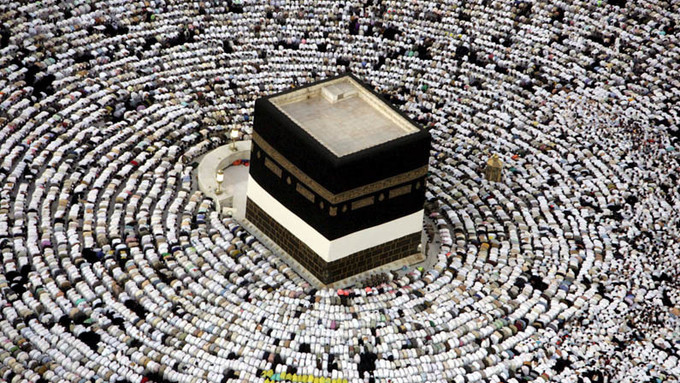Truth: Between Conviction & Delusion
In his autobiography Deliverance from Error (Al-Munqidh Min Adh-Dhalal), Imam Abu Hamid Al-Ghazālī explains how he dealt with his skepticism on the path to attaining certainty regarding what beliefs he adopted. He mastered the tenets of the major intellectual movements of his time and authored books in each, garnering the praise of figures within these movements for how Imam Al-Ghazālī not only understood the core issues they were dealing with, but that he had a better grasp on them than their own scholars. Nevertheless, the intellectual activity proved to be insufficient, as it never settled his restless soul. The significance of Imam Al-Ghazālī does not lie so much in his insights about the specific deficiencies of arguments within each intellectual movement and sect during his time. Rather, it is in his realization that a discourse claiming to deal with knowledge but that cannot in turn be realized in tangible action that transforms one’s being is in reality a façade – a mirage of enlightenment.
The Arabic terms for knowledge, ‘ilm, and action, ‘amal, differ only in the order of letters. Changing the letter order once more results in the word lama’, which means brilliance. True enlightenment, which is really about having the capacity for insight, i.e., being able to see beyond what is apparent and presented to the sight, is a result of having a purified heart. Indeed, although the Beloved ﷺ had his heart physically washed, the ingredients that made up the water used in that purification process have been passed down over the past generations. For us, it is a matter of consciously mixing them and doing the washing ourselves.
A purified heart is necessarily one that is connected with God. The possessor of such a heart reflexively interprets the events of their lives as reflections of Divine Attributes in light of the Big Picture. God’s mercy is not something to be judged based on a limited interaction with this world, for our presence in the world is nothing but a brief stop on the path to the Final Abode. Attachment to this temporal realm is an attachment to an illusion of the power of the self. It is the idea that I am the possessor of my destiny, and that my plans will get me to my goals. The delusion here lies in the fact that there is no I or me for there to be a my. That is not to say that one should stop contemplating the future and plan accordingly. But it is to point out that plans have a funny way of becoming an idol to be worshiped, albeit subconsciously, besides God. A man knocked on the Beloved’s ﷺ door and when asked to identify himself he replied, “It’s me” as if the Beloved ﷺ should recognize who it was from his voice, to which the Beloved ﷺ replied with dislike, “It’s me! It’s me!”
The Beloved ﷺ taught a man who asked about whether he should tie his camel or just have reliance on God that he should “tie it and rely on God.” The teaching here is that it is upon one to strive, but it is not upon one to arrive. In other words, you must carry out the means, but do not get attached to them or to their outcomes. Rather, your possession of the camel has nothing to do with your own doing in the real sense of what that would actually entail. You have no power to sustain your own contingent and temporal existence, let alone possess any power of your own to bring another’s existence to be subjugated to yours.
Among the invocations recited during the morning and evening litanies practiced and transmitted from the Beloved ﷺ is one stating, “O God, I seek from you a surprise that is good, and I seek refuge with you from a surprise that is bad.” Plans are our means to create an orderly life to minimize anxiety about the unknown. Plans give us a false sense of certainty about how life will unfold. It is a feeling of being awake when in reality we have gone to sleep. This is evident in the way many of us react when things do not go according to plan. Like the one who gets suddenly awoken in the middle of the night, we become upset and lash out due to having our imagined state of comfort disrupted, even if the person we get upset with has nothing to do with the disruption aside from being the means through which we experience it.
Our perception of the quality of surprises being “good” or “bad” is limited to our experience of the world. We heedlessly wonder about how we could reconcile God’s love and mercy with circumstances that we feel are “bad”, rather than wonder about our own perception’s validity in relation to the Big Picture. Whether what we go through life happens to be good or bad is a judgment that we cannot make until we actually get through life. Aristotle viewed that happiness can only be ascertained after one reaches the conclusion of their life and assesses the sum total. The Quran states that real life where such a judgment about happiness can be made is in the Final Abode. Our existence in this world is merely a preparation.
“No calamity befalls on the Earth nor in your own selves except that it was written before it was brought into existence; surely, that is easy for God. This is so that you may not grieve for what has escaped you, nor be exultant at what He has given you.” Quran [57:22-23]
The Beloved ﷺ gave a counsel to his young cousin Ibn Abbas (may Allah be pleased with him) in which he told him that nothing meant for him can be prevented from reaching him even if everyone in the universe were to gather their efforts to stop it, and nothing can afflict him with harm that was not meant to afflict him even if everyone in the universe were to conspire for it to make it happen. Having certainty in the Divine Decree is a difficult thing, if not impossible, to attain if this Prophetic counsel was restricted to the intellectual realm. The achievement of this certainty can only be attained, as Imam Al-Ghazālī realized, through the path of action. “And worship your Lord until certainty reaches you.” Quran [15:99]
The certainty mentioned in the verse is traditionally interpreted to mean death. However, another layer of meaning can be extracted based on the verse that says, “I have not created the Jinn and Mankind except for that they worship Me.” [51:56] According to Ibn Abbas (may Allah be pleased with him), what is meant here is that the purpose of creation that was to be realized through worship is to know God. In other words, the verse mentions the means to arrive at the objective. To know God is to know the Truth, and to know the Truth is to have certainty. But none of this can be realized unless one begins with acknowledging that this can only come on God’s terms, not on ours, for that “He does not get questioned about what He does. Rather, it is they who get questioned.” Quran [21:23]
Knowledge of God does not come through rational contemplation. One cannot claim to know what falling in love feels like simply because they have measured oxytocin and dopamine levels and looked at functional MRI brain scans of lovers as they thought of each other. The non-rational experience of love is the only way to know what love is like. Only those in love can comprehend what Jane Austen meant by saying, “If I loved you less, I might be able to talk about it more.” Or better yet, only those who are enamored in love can understand what Qays ibn Al-Mulawwah meant when he said,
I kiss the dirt that your foot walks upon O Loa’yla
If it were not for you I would not be called the Afflicted One
My kissing of the dirt is not out of love for the ground
It is out of love for the one who stepped upon that dirt
I went insane because of her and have become
A lover who enjoys through her the experience of pain
Whoever tastes, they shall know, and whoever knows, they shall indulge. One of the past Muslim sages said, “The ignorant of God is one who wakes up wondering what they will do that day. The knower of God is one who wakes up wondering what God will do with them.” This statement is a reflection upon a Hadith related by the Beloved ﷺ in which God says in part of it, “When I love [My servant] I will be the ears with which they hear, the eyes with which they see, the hand with which they strike, and the leg with which they walk.” When one sees everything and every event as a sign meant to direct them to God, nothing will seem out of place.
Much of the spiritual crisis and doubts many experience can be attributed to the lack of personal investment and engagement in the actions prescribed by the Lawgiver. We have turned our rational powers from means to get to God into ends that everything, including God, must be subjected to. We live in a time when everything in Islam that deals with action is being explained away in a fashion that facilitates inaction. Nuance is being introduced increasingly into every aspect of Islam as it is being deconstructed to fit whatever happens to be the popular cultural movement. Instead of belief in God, we believe in ourselves, and we project a model of religion and God based on our own notions of what constitutes love, mercy, bigotry, and tolerance. There is a metaphysical effect to observing the Sacred Law that is undermined by its abandonment. Prayer is not a set of stretching exercises, the Hijab is not about men, and fasting is not about losing weight. Before one asks, “Where is God?” they must first cease from participating in this circumambulation around the ego in a collective act of self-worship. Only then will the world no longer be a veil between us the Unseen.
Faith & Spirituality Related Articles

5 Practical Steps To Get You Ready for Ramadan
As Ramadan is less than a month away, we might feel we often haven't done enough to prepare for it. Here are 5 things we can do right now during Shaban to make sure that we get the most out of Ramadan. The Prophet (Peace & Blessings upon Him & His Family) supplicated,” O Allah give us the blessings of Shaban and give us the treasure of Ramadan.”

Hajj at Home: Kindling the Spirit of Arafah
Even if we are not on Hajj this year, our situation is no different. We navigate through the complexities of our daily life, immersed in the never-ending responsibilities of work and family, inundated with the intrusions of technology and social media into every minute of our lives, moving from place to place and idea to idea.
